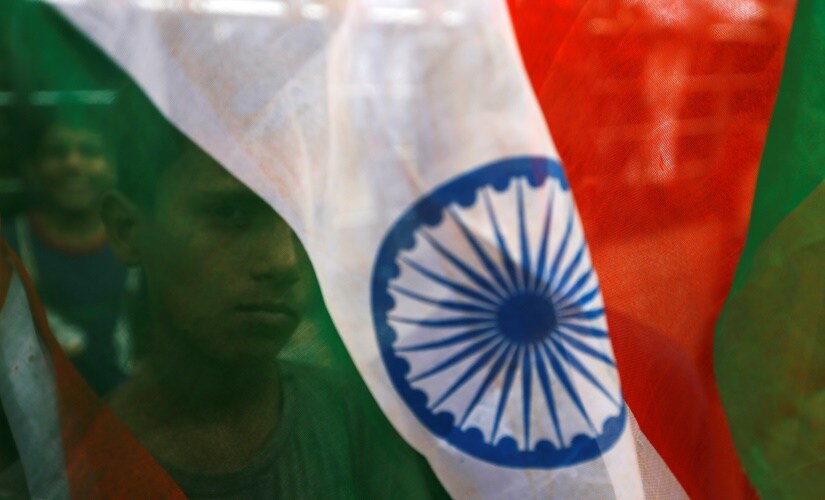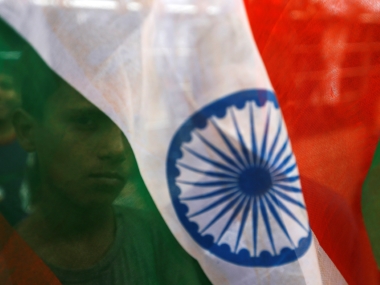This essay is part of Firstpost’s ‘India and the Indian’ series, which examines the renewed idea of nationalism in vogue today, and what it means. Read more from this series . *** The gated residential complex that I reside in, in a nondescript locality on the outskirts of a cosmopolitan city, is home to a few communities. There are Gujaratis, Marwaris, some who are originally from Bihar, Uttar Pradesh, and Bengalis. The complex houses a small temple frequented mostly by members of the Marwari and Gujarati community. I haven’t seen too many Bengalis (I refer to Hindus here) visit the temple. Hindu Bengalis pray before own deities, and even among this sub-genre the deities have no conformity. Families traditionally have own ‘kuldevtas’ who demand careful adherence to a particular set of norms that are different in nearly every household. Respective religious and cultural festivals are frequently arranged throughout the year in a small way. The gods are distinct, so are the customs, rules and regulations. And yet all form an incredible mosaic that subscribes to the larger Hindu identity. The point of this anecdotal introduction is to exemplify the lived reality and everyday pluralism that form the basis of the montage that we loosely call Hindu faith. For Hindus, respect for different customs, faiths and religion is not a value to strive for. It is not an inalienable concept to be discussed and adopted with rigour. Pluralism, for Hindus, is a way of life. [caption id=“attachment_6823971” align=“alignnone” width=“825”]  Illustration © Satwick Gade for Firstpost[/caption] And this pluralism stems from a polytheistic tradition of worshipping innumerable gods. It is, equally, based on a harmony with nature where “god” may refer to a personality, particular sect, a philosophical tradition, or even “a natural power, or a representation of a certain moral value or quality". Under the broad principles of dharma (duty, not just religion), karma (deeds and conduct) and moksha (release from the cycle of rebirth), Hinduism allows for different schools of tradition and philosophies to reside concurrently. Hinduism is not an Abrahamic faith. It does not believe in proselytisation, nor does it rely on the sacredness of the written word. It is more an oral tradition, or more accurately, an accumulation of a diverse set of traditions without a centralised ecclesiastical command. This precludes the possibility of any rigidity from seeping in and allows enough space for self-correction that Hinduism has undergone over the years through reformative movements. This context is important to understand the tenets of Hindu Nationalism that has now gained ascendance with the continuing dominance of the BJP as a political power. BJP’s electoral dominance and Narendra Modi’s unprecedented mandate, twice over, has created ripples across the ideological spectrum. The western press, which mirrors the Indian Left-Liberal consensus, interprets Modi’s rise as the manifestation of a malevolent version of Hinduism that speaks of majoritarianism. The Hindu nationalism that has gained increasing coinage — having received total electoral validation — has raised fears that in this ‘New India’, Muslims and other religious minorities will have no space. The nationalism that emerges from this tradition and seeks to build a ‘Hindu Rashtra’ has posed enormous challenges for scholars because there is a fundamental misconception about the nature of this impulse. In this reading, ‘Hindu Rashtra’ becomes a theocratic state, quite separate from the secular credentials of Jawaharlal Nehru’s India. Quite naturally, minorities are ‘secondary citizens’ in such a “theocratic Hindu Rashtra.” This is a serious concern given the complex, multi-religious and diverse nature of India’s polity. The Economist newspaper had in 4 May edition urged the Indians to oust prime minister Narendra Modi and deny him a second term in Lok Sabha elections. “…Even if the BJP’s Muslim-baiting does not ignite any more full-scale pogroms, it still leaves 175m Indians feeling like second-class citizens,” it wrote, calling BJP a “threat to democracy”. South Asia scholar Christophe Jaffrelot, in his book Majoritarian State: How Hindu Nationalism is Changing India, writes that India is moving towards an “ethnic democracy” where minorities must “accept a status as dominated, second-class citizens.” Referring to “Jewish dominance at the expense of Muslims”, he concludes that “in India, a similar evolution may result in constitutional amendments, transforming a de facto Hindu Rashtra into a de jure one." The edited excerpts have been published in Caravan magazine. In his piece for Carnegie Endowment, senior fellow and director of South Asia Program Milan Vaishnav reckons that Modi’s reelection may threaten India’s “future as a secular republic.” “The BJP’s electoral resurgence of late has once more brought an alternative nationalism to the fore, one based not on secular principles but rather on the premise that Indian culture is coterminous with Hindu culture. This departure from India’s secular tradition, which itself was initially damaged by the self-inflicted wounds of the Congress Party, raises difficult questions about India’s political future and its long-standing commitment to the credo of “unity in diversity,” writes Vaishnav. Vaishnav and others are right when they talk about “an alternative nationalism” coming to the fore. Vaishnav is also accurate when he says that this nationalism is based on a premise that “Indian cultural heritage is coterminous with Hindu culture”. But this argument suffers from a fundamental misconception that stems from an inability to understand the nature of Hindu exceptionalism. Vaishnav, a serious scholar who has a body of excellent work to his credit, also falls prey to the prevalent practice of looking at Hinduism through the lens of Abrahamic religion. The point being made here is that there is a critical difference between Hindu nationalism and Nehruvian “secularism”. And the difference is not that the former is a hairpin bend towards majoritarianism that speaks of Hindu cultural and religious supremacy. On the contrary, quite distinct from Nehruvian “secularism” — a curious breed of western liberal tradition (strict division of power between the church and the state) and a homegrown interventionist impulse that sought to keep “principled distance” between religion and the state — Hindu nationalism speaks of a plurality that is innate and a secularism that is intrinsic, precisely because it draws upon Hindu civilizational and cultural ethos that is liberal, heterogenous, based on principles of dharma and karma and guarantees absolute freedom of belief and worship. The RSS, that has grown in organisational strength and influence in the social and political spheres in India and reflects the broad, conservatist contours of Hindu nationalism, recently sought to engage with the wider public and throw some light its workings, ideology and belief. The three-part lecture conducted by sarsanghchalak Mohan Bhagwat in September last year was remarkable for the clarity with which Bhagwat redefined the ideological moorings of RSS and offered a settlement with the wider polity. He also tried to clear the cobwebs in minds of doubters who treat the organisation as a malevolent force out to engineer a ‘majoritarian takeover’ of the nation. The assertion by Bhagwat, that Hindu Rashtra cannot be exclusionary, was important because it links Hindu Nationalism with the older tradition of inclusive nationalism. [caption id=“attachment_6864581” align=“alignnone” width=“825”]  Representational image. Reuters[/caption]
The Sangh calls every Indian a ‘Hindu’, but that is a civilizational connect, not a religious one. It refers to the territorial idea of India between the Indus, Himalayas and the oceans. To assert this Hindutva is not to negate or undermine the identities of other minority communities, but to include them as essential parts that make the whole. “Hindu Rashtra does not mean it has no place for Muslims. The day it is said that Muslims are unwanted here, the concept of Hindutva will cease to exist”, said Bhagwat, while clarifying that those who wished to be called “Bharatiya” and not Hindu are to be equally respected.
In many ways, Bhagwat’s assertion is important in understanding the moorings of Hindu nationalism that seeks a negotiated consensus with minorities while not letting its own interests be overlooked. This is also another critical difference between Hindu nationalism and the Nehruvian Idea of India. The latter sought to undermine and even negate Hindu cultural heritage while establishing the Indian state’s “secular” credentials, while the former seeks continuity with past Hindu traditions, attachments and values that undergird Indian secular tradition. Nehru found in the British accusation — that Indian nationalism was an “exclusively Hindu phenomenon” — an insurmountable challenge. He was aghast at then President of India Rajendra Prasad inaugurating the restored Somnath Temple because to him, it suggested a deviation from India’s “secular credentials” and “lowered India’s image abroad”. While building on the Idea of India, Nehru was also responding to the historical context where Muslims who had opted to stay in India needed some reassurance that they won’t be made second-class citizens in a ‘Hindu Pakistan’. While fulfilling that commitment, Nehru perhaps erred on the side of caution and sought to divest Indian secular tradition of its Hindu moorings. This was a practice fraught with dangers that ultimately proved the eventual undoing of Nehruvian Idea of India. To understand this chain of events, we may need to look at the nature of “secularism” that Nehru sought to establish at the dawn of Indian Independence. In his article Reimagining Secularism, political scientist Rajeev Bhargava argues in EPW that “Indian secularism” which may be taken as the Nehruvian consensus, “does not erect a wall of separation between religion and state. There are boundaries, of course, but they are porous. This situation allows the state to intervene in religions in order to help or hinder them without the impulse to control or destroy them.” But the problem with this approach, which is essentially subjective in nature, is that while deciding upon the areas of state intervention there is always a danger of upsetting the delicate balance of negotiated settlement between different communities. State’s equidistance from religion as a policy is subject to no such danger because of the moral absolutism at work. As Bhargava goes on to write, “principled distance allows a practice that is banned or regulated in the majority culture to be permitted in the minority culture because of the distinctive status and meaning it holds for the minority culture’s members.” The “principled distance” was always going to be difficult to uphold, and it became progressively corrupted as successive Congress leaders saw in the approach a shortcut to create permanent “vote banks” through a practice that has come to be known as ‘pseudo-secularism’. As Vaishnav writes in his article, BJP has long accused “Congress Party and other so-called secular parties” of engaging in “pseudo-secularism rather than genuine secularism. In other words, they allege that secular parties have adopted a holier-than-thou approach as if they are above religious considerations. But, in practice, they have cynically engaged in religious pandering—especially with regard to India’s Muslims—to shore up their political base.” The differential treatment ultimately gave rise to a grievance narrative among the Hindus who saw that the interests of Hindu majority were being frequently undercut and the negotiated settlement robbing them of their religious, cultural and nationalist heritage. To take just one example, as conservative commentator Rajya Sabha MP Swapan Dasgupta writes in his book Awakening Bharat Mata, nothing captures the betrayal and distortion of nationhood in the new negotiated Nehruvian consensus as the treatment meted out to Vande Mataram. Written by Bankimchandra Chattopadhyay in 1875, the song that makes an appearance in his work Anandamath became India’s symbol of defiance against British rule and the foremost national anthem that inspired millions. And yet, this ode to the motherland was never acceptable to a large section of Indian Muslims who, as Dasgupta writes, was uneasy with its ‘anti-Muslim’ context and idolatrous nature. As Muslim League leader Muhammad Ali Jinnah refused to accept Vande Mataram as a national anthem, Congress eventually settled on Jana Gana Mana, but even Mahatma Gandhi was anguished over the turn of events. Dasgupta quotes Gandhi, as saying, “It never occurred to me that it [Vande Mataram] was a Hindu song or meant only for Hindus. Unfortunately now we have fallen on evil days. All that was pure gold has become base metal today.” The Partition of India couldn’t be resisted despite the concession to Muslim League on Vande Mataram but, as Dasgupta argues, “the relegation of this defining symbol of the freedom struggle to history had a definite political consequence.” It not only divested Indian nationalist movement of its Hindu motif but also created a distance between India’s power centres controlled by a small clique and the masses who could not relate to this artificial Idea of India. “Under the leadership of Jawaharlal Nehru, the post-Independence Congress slowly attempted to become more consciously ‘secular’ and shed explicit identification with Hindu imagery. In the process, it vacated a space that was gleefully appropriated by Hindu nationalism as its very own,” writes Dasgupta in the book whose excerpts have been published by Open magazine. To sum, the concept of Indian nationalism that has come to the fore — which has also been described as an alternative Idea of India, is essentially a robust nationalism that is unapologetic about its Hindu heritage and deeply attached traditional values. And yet, precisely because it is moored in Hindu liberal tradition of pluralism, India’s future as a secular republic is secure.


)

)
)
)
)
)
)
)
)



